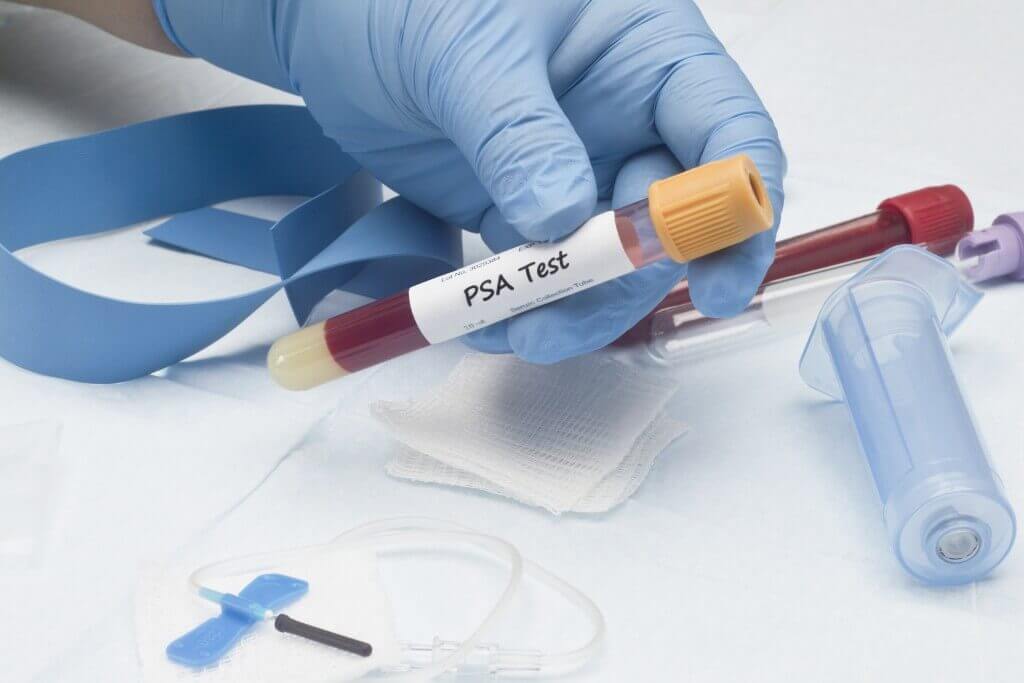Prostate cancer awareness
Nov 20, 2017
23663 Views
The prostate is a walnut-shaped gland, wrapped around the urethra and is found only in males. It is located in the pelvis and has a dual role; it secretes seminal fluid that contains and nourishes the sperms and also regulates urine flow by the several muscle fibres present around the urethra.
Second only to skin cancer, prostate cancer is a common occurrence in men, especially above the age of 60- 65 years. Experts estimate that by the end of 2017, 161,360 new prostate cancer cases would have been diagnosed and 26,730 deaths would have occurred due to this cancer [1]. Often observed in the developed countries, prostate cancer is witnessing quite a surge in the developing regions as well. In India, Delhi, Pune, Kolkata, Thiruvananthapuram, Bengaluru and Mumbai have a high number of prostate cancer cases [2].
What are the risk factors involved? Can this cancer be prevented?
Cancer develops due to uncontrolled growth of the cells, which is caused by genetic mutations. While the exact trigger of prostate cancer remains a mystery, there are certain factors that can predispose an individual to prostate cancer. However, these risk factors are not the ones leading to cancer development in every case.
Firstly, age plays an important role in prostate cancer development. The size of the prostate gland increases with age. The older the person is, the higher the risk of prostate cancer. Secondly, the race or ethnicity of the individual can be determining factor in cancer. For reasons yet unknown, African- American men are more likely to develop prostate cancer than their Hispanic and Asian counterparts. Thirdly, there are strong genetic determinants that play a role in prostate cancer development. An individual with a family history of prostate cancer is at a greater risk than those men who do not have a family member with prostate cancer. Lifestyle and diet choices also influence this cancer. A sluggish, inactive lifestyle preceding obesity, supplemented with a diet rich in fats and red meat and poor in fresh fruits and vegetables is a major donating component. Curiously enough, smoking, a history of prostatitis, Sexually Transmitted Disease or even vasectomy are not considered risk factors for prostate cancer.
As is obvious, leading a fit and nourishing lifestyle is imperative, not only to avoid cancers, but also other diseases. For prostate cancer, clinical trials have investigated the roles of certain drugs to prevent cancer from developing. These drugs have shown positive results, but are yet to get approved by the FDA for use in patients. Patients in these trials had a lesser incidence of prostate cancer when treated with the test drugs, but patients who did develop cancer, their cancer was more aggressive than normally seen.
What are the signs and symptoms of prostate cancer?
In its early stages, prostate cancer does not display any symptoms. Once the cancer has advanced reasonably, it reflects in the person’s urination patterns. He may experience difficulty or pain during urination, have frequent urges to urinate, may pass blood in the urine or even have erectile dysfunction. If the cancer has metastasized, it is likely to cause pain in the bones of the lower back, pelvis, ribs or femur and at times, bone fractures. Other symptoms, characteristic of any cancer include unexplained weight loss, weakness and fatigue.

How is prostate cancer diagnosed?
Persistent discomfort of any sort during urination or erectile dysfunction should be followed by a prompt visit to the doctor. The doctor then asks for the medical and family history and performs a physical examination. A blood test if shows elevated levels of PSA or prostate- specific antigen, a set of further tests are recommended. They include scans like the bone scan, MRI and/ or CT and biopsies. Once a definite diagnosis and the stage of the cancer is confirmed, appropriate treatment routines are decided.
What are the treatment options?
Low- risk prostate cancer patients often do not require to be treated immediately. Some patients do not need treatment at all. Depending on the nature of cancer, doctors may suggest a period of ‘active surveillance.’ In this period, regular blood tests, rectal examinations and biopsies are performed to monitor the cancer development and progression. Depending on the test results, the doctor then delineates the treatment course.
Any cancer is treated using three approaches, either alone or in combinations. These are chemotherapy, radiotherapy, and surgery. In the case of prostate cancer, additional therapies exist, namely hormone therapy, cryosurgery, and immunotherapy. The course of the treatment is decided on the basis of its stage (I to IV, with a stage 0, indicating cancer is only in the prostate) and the extent of metastasis.
Hormone therapy aims to decrease the body from generating testosterone and in turn, retarding the growth of the cancer cells. Cryosurgery involves alternate freezing and warming of the prostate tissue which leads to the death of the cells. Immunotherapy or biological therapy includes administration of drugs that help the immune system fight cancer. One such drug that has been developed to fight advanced, recurrent prostate cancer is sipuleucel-T (Provenge). Even though effective results have been obtained in some cases, this therapy is expensive and should be followed only under strict professional supervision.
Which gene mutations are responsible for the predisposition?
Genomic studies have identified that prostate cancer susceptibility can be traced to multiple genes. Quite a number of population- based studies have exposed certain genes, which when inherited in their mutated forms can cause a certain level of predisposition to prostate cancer. The genes implicated include BRCA1, BRCA2 and HOXB13. While several other genes have been shortlisted, their clinical significance in treatment remains to be elucidated [3].
Given the complex nature of cancer, experts say that looking at just 1 or 2 common genes alone might not help in diagnosis, for clinical confirmation. Next Generation Sequencing (NGS) panels are now available for analysis of relevant genes – clinical exome, whole exome and whole genome for high-precision interpretation and reporting. Genetic variations identified in an affected individual (proband) can be subsequently analyzed in family members, for risk assessment. Pre- and post-report counseling is strongly recommended for accurate analysis and getting the right guidelines for management strategies. These can be done in consultation with the physician, if necessary.
The experts are divided on whether screening for prostate cancer should be done on a regular basis. The best option is to pursue screening on a doctor’s advice.
Prostate cancer awareness
Due to the absence of signs and symptoms in the early stages, prostate cancer can often go undiagnosed till it has reached advanced stages. Thus, it is imperative to talk about this as much as possible and to make people knowledgeable about the warning indicators that they should keep a lot out for and the immediate steps that can be taken. Discussions regarding diagnostic and treatment options can be undertaken.
Cancer takes a toll on one’s mental and emotional well-being, let alone physical health. Thus, if your friend or a family member has prostate cancer, be sure to be with them in their difficult times, encourage them to lead a normal, healthy life and to go about their usual routine. Creating a positive sense of belonging and an optimistic environment will only make the healing process easier.
References
- https://seer.cancer.gov/statfacts/html/prost.html
- Jain S et al. Epidemiology of prostate cancer in India 2014. Meta Gene. 2: 596–605.
- https://www.cancer.gov/types/prostate/hp/prostate-genetics-pdq


